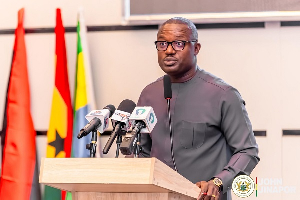Ghana’s Minister of Energy and Green Transition has disclosed that the previous administration quietly handed over the Tema Oil Refinery (TOR) to a private company for just US$22 million, raising serious concerns about transparency, value for money, and national interest.
John Jinapor, who made the revelation during a working visit to the refinery, described the transaction as “surreptitious”, questioning how such a strategic national asset could be transferred under unclear terms and without the approval of key oversight bodies.
He stated that the matter has been formally referred to the Attorney-General for legal review and appropriate action to determine the legality of the deal and ensure that Ghana’s strategic energy infrastructure is not compromised.
The disclosure comes at a time when TOR, Ghana’s only state-owned refinery, is undergoing a phased rehabilitation to restore its operational efficiency after years of low output and equipment challenges.
Over the past nine months, the refinery’s management, led by Mr Edmond Kombat, has overseen significant upgrades aimed at boosting daily refining capacity, reducing operational losses, and improving environmental standards.
The minister lauded the progress but stressed that leadership instability has historically undermined TOR’s performance. He urged management to adopt long-term, sustainable business models and build partnerships that are transparent and nationally beneficial.
He also announced that his ministry will collaborate with the Ministry of Roads and Highways to improve road access within the Tema industrial enclave — a move expected to enhance supply chain efficiency and refinery logistics.
Beyond the refinery, the Minister also paid a working visit to the Ghana Grid Company (GRIDCo), where he expressed concern over the firm’s declining financial position. Once a financially robust entity capable of self-financing major transmission projects, GRIDCo is now grappling with liquidity constraints that threaten its operational capacity.
He charged GRIDCo’s management to implement measures to restore its financial health, emphasising that the company’s stability is key to the success of President John Dramani Mahama’s 24-hour economy initiative, which relies on a reliable power supply to sustain productivity and job creation.
The visits, according to the Minister, form part of a broader government agenda to modernise Ghana’s energy sector, strengthen corporate governance, and ensure accountability across all state-owned enterprises.



